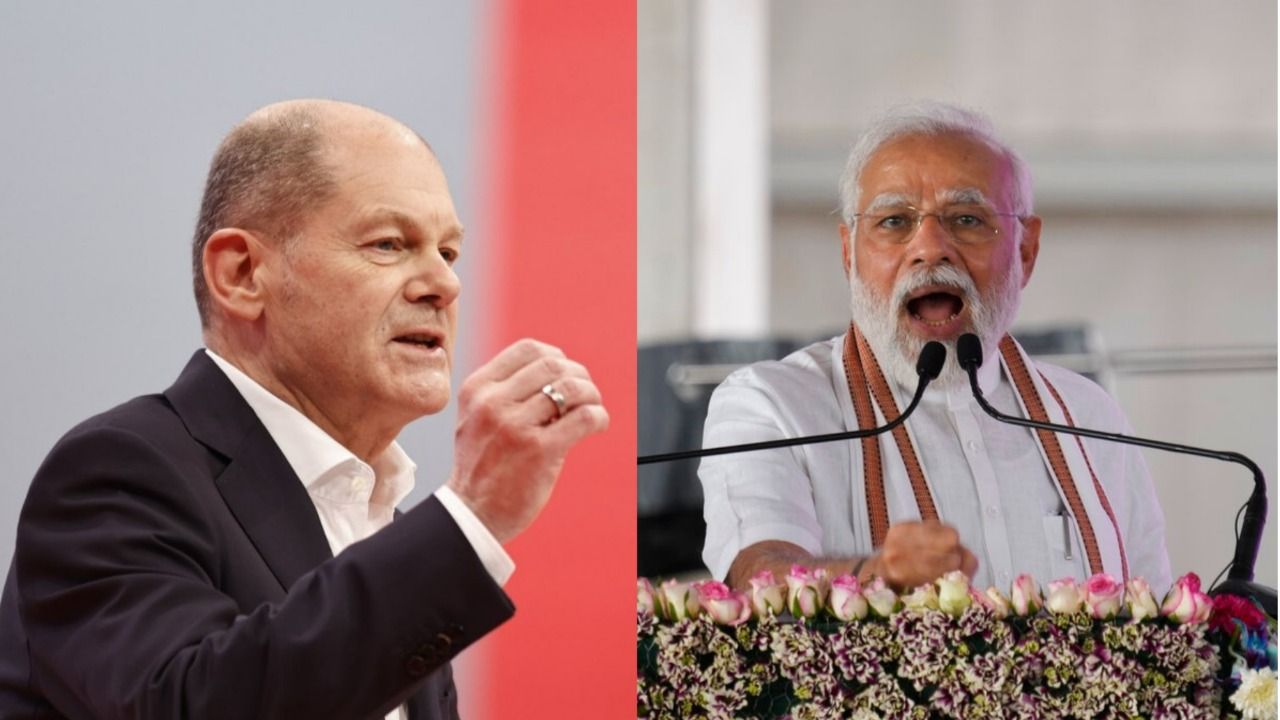Germany is Europe’s
biggest economy, India the world’s fastest-growing. Germany, for some time, has
been in a controlling position in European polity, India is to where the West
has looked for hope in liberal democracy as China spreads its sphere of
influence. However, the Russia-Ukraine crisis has upended the world order and
has thus affected both Germany and India’s place in the world. With Indian
Prime Minister Narendra Modi in Berlin, scheduled to meet German Chancellor
Olaf Scholz, the two nations might be looking to reinvent their place in the
world.
Chancellor Olaf
Scholz, who took over power from Angela Merkel in December last year, has
battled immense criticism, both domestic and international, regarding the
German government’s response to the Ukraine crisis. Scholz’s response has been
variably described as procrastination, dithering and timidity, even by members
of his own government.
Also Read | Report: Germany top buyer of Russian energy since war began
This criticism has
caused Scholz to relent. In a sharp policy U-turn, Germany decided to send
heavy weaponry to Ukraine last week, in the form of self-propelled
anti-aircraft systems. In an interview with a German tabloid, Scholz said, “I
am making my decisions quickly and in conjunction with our allies.”
Upon being asked
what the new chancellor thinks of his low approval ratings, Scholz said, “You
should notice opinion polls but should not make your actions dependent on them.
Especially regarding questions of war and peace, this would be immensely
dangerous.”
Also Read | Why some world leaders are refusing to term Russia’s actions as ‘genocide’
Scholz, upon being
asked by The Indian Express, if Germany’s dependence on Russian oil influences
its strategic decisions, said that Russia’s invasion of Ukraine was an
unacceptable breach of international law. “The Russian invasion of Ukraine
shatters the homes, the livelihoods and the very lives of Ukrainians. I have
called on President Putin before and I do so here again, to end this war now.”
“We are
furthermore implementing a very ambitious policy to reduce our dependency on
the import of fossil fuels from Russia. We will stop the import of Russian coal
this summer, we will phase out Russian oil until the end of this year and will
reduce gas imports from Russia severely,” said Scholz.
Also Read | Putin’s demand for ruble payments? No way! say EU nations
On Sunday, Germany’s
Economy and Climate Minister Robert Habeck said the country has cut down on its
share of Russian energy imports to 12% for oil, 8% for coal and 35% for natural
gas. “All these steps that we are taking require an enormous joint effort from
all actors and they also mean costs that are felt by both the economy and
consumers,” Habeck said.
When Russian
President Vladimir Putin launched “a special military operation” in Ukraine on
February 24, the international community’s eyes went to the Nord Stream 2
pipeline. A project of immense significance for Germany and the rest of Europe
for energy security. However, the Russian offensive made Germany block the
project despite its extremely high economic costs.
India and its prime
minister Narendra Modi have not had such a difficult time in dealing with the
Russia question. Western condemnation notwithstanding, India has stood neutral
and true to its pledged doctrine of non-alignment. While India’s position
apparently appears singularly principled, it was also guided by national
self-interest, and unashamedly so.
India has always
been close to Russia, since it was the Union of Soviet Socialist Republics
(USSR), and has always depended on Moscow’s arms manufacturing prowess to
defend its billion-strong population from external aggression. Now, when India
was offered discounted Russian crude because hardly anyone else was, India
bought shiploads even though Indian refineries lack the capacity to process a
lot of Moscow crude.
The Indian prime
minister, while leaving for Germany, tweeted, “My visit to Europe comes at a
time when the region faces many challenges and choices…The Ukraine conflict
will be a key focus during the tour although the key focus will be cooperation in
energy, trade and green development.”
Modi is scheduled
to meet three European leaders during his three-day visit. Along with Scholz,
Modi will also meet Denmark Prime Minister Matt Frederikson, and French
President Emmanuel Macron.







